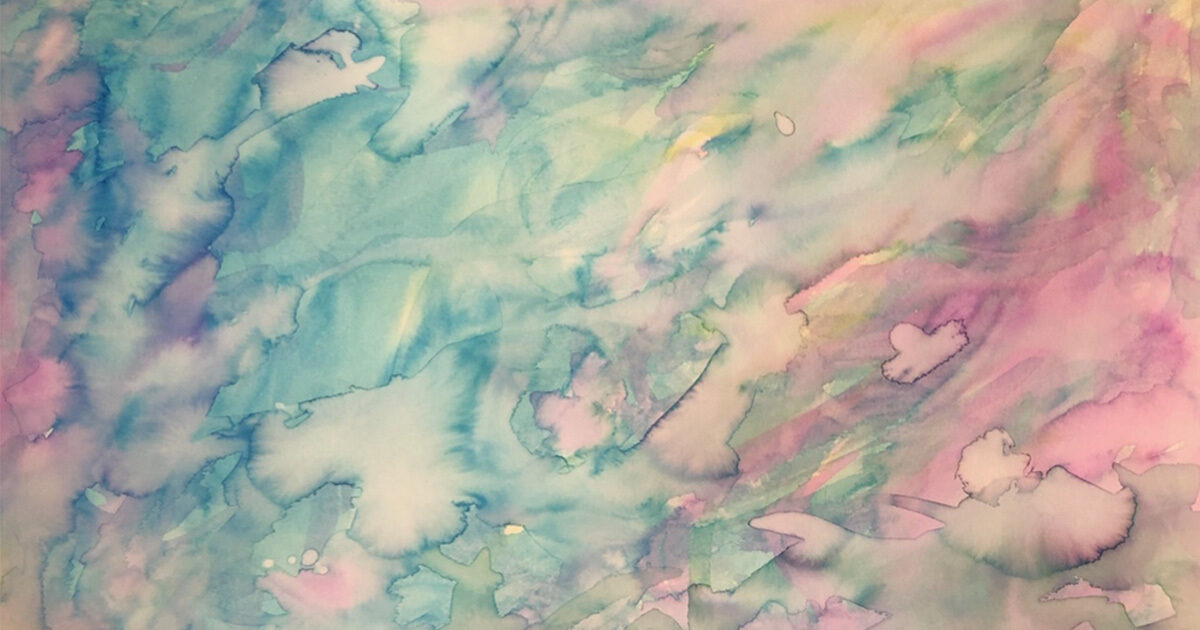Post-COVID Patients Find Community Through Art
A weekly virtual art workshop provides an outlet for patients in the Post-COVID Program at UT Health Austin
Reviewed by: Becky Villarreal, Dianne West, Mia Carter, Stacy Vernon, Sam Bazzi, and Esther Melamed, MD, PhD
Written by: Lauren Schneider

UT Austin professor Mia Carter first realized she was in over her head during a trip to Pagosa Springs in summer 2020. The heart rate monitor on her smart watch hit 170 in the middle of the night, a disturbing signal at her level of athleticism. “I felt like I was having a stroke,” she recalls.
Earlier that spring, Mia had contracted COVID-19 and dealt with a bout of what she believed was bronchitis, but this incident marked the beginning of wide variety of symptoms including cardiovascular and gastrointestinal difficulty. Many patients who survive acute COVID-19 go on to have lasting symptoms, a condition which goes by many names including Long-COVID, post acute sequelae of SARS-CoV-2 infection (PASC).
Patients with post-COVID syndrome have reported symptoms including the following:
- Brain fog
- Dizziness
- Fatigue
- Spasms
- Gastrointestinal symptoms
- Blood pressure fluctuations
Mia describes feelings of frustration and loneliness that accompanied her physical symptoms. “I think almost everyone that I know who has had Post-COVID has gone through this period where others just don’t believe them. With this uncertainty and fear of wondering if you’re ever going to feel like yourself again, it takes a very strange psychological toll.”
A New, Specialized Program
Mia’s doctor introduced her to Esther Melamed, MD, PhD, who serves as a neurologist in the Multiple Sclerosis and Neuroimmunology Center within the Mulva Clinic for the Neurosciences at UT Health Austin.
Because of her expertise in neuroimmunology, Dr. Melamed witnessed the emergence of post-COVID firsthand in the clinic as she treated patients with neurological symptoms associated with COVID-19. “It was kind of fortuitous that I was a neuroimmunologist at the beginning of the pandemic because it really allowed me to have the clinical ability to start taking care of these patients,” she says.
These clinical experiences would have a profound impact on her research. Her laboratory began to take on projects related to the neurological effects of the coronavirus, with members maintaining a blog to educate the community about the condition.
As the pandemic went on, a consensus developed around the need to understand the unique clinical challenges faced by long-COVID patients. The Post-COVID-19 Program at UT Health Austin was founded for the purpose of studying and treating long-haul COVID-19, and Dr. Melamed was named as the program’s Research Director. Patients like Mia can join art workshop for emotional support in addition to the medical care they receive in the Post-COVID-19 Program, and access to physical, cognitive, and occupational therapy as well as nutritional counseling.
Reconnecting With Self-Expression
The weekly art workshop is facilitated by Sam Bazzi, a graduate student in Dr. Melamed’s laboratory. Bazzi was inspired to offer art workshops for patients based on his own experiences turning to old hobbies for comfort during lockdown. “I found art to be a really helpful way to deal with some of the isolation and challenges of the pandemic. Dr. Melamed and I thought it would be a great idea to share this activity with people who were struggling with long-COVID, which can be a very isolating illness for patients because there are not many community resources available.”
Like Bazzi, some participants reconnected with their creative side during the workshop. “I hadn’t sketched or painted since my children were born, so I was excited to talk about art with people again,” says Stacy Vernon, who began treatment in the Post-COVID-19 Program last fall after her first infection in June 2021. “I remembered how much I enjoyed being artistic.”
Creating Community
At each session, participants are given an assignment focused on a different fundamental of drawing to complement that week’s discussion topic. During a session on value (the amount of light or dark in a color), participants discussed “the shades of gray between really joyful and really stressful days,” says Bazzi.
“This is an atmosphere that Post-COVID patients can feel comfortable to be themselves,” says participant Dianne West, “My biggest take away was that I was not alone in this, which was both a wonderful and completely devastating realization.”
For some, this sense of community lasted beyond the eight-week course. Becky Villarreal enrolled in the program the first time it was offered in January and jokes that she enjoyed her experience so much she “crashed” the second group that summer. “I’m able to encourage others and also to continue to get support for myself.”
Bazzi and Dr. Melamed expect to offer a third round of sessions in spring 2023. Artwork and stories from previous participants can be viewed on their lab website.
To learn more about the Post-COVID-19 Program at UT Health Austin, click here or call 1-833-UT-CARES (1-833-882-2737).